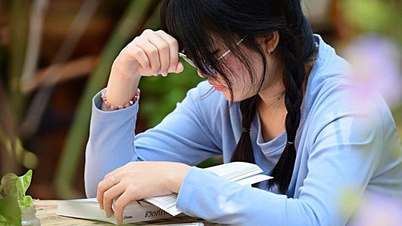
Every child can learn skills if parents educate them properly - Photo: Parents
Social skills need to be continually developed as children grow. These skills continue to develop with age and can be learned and strengthened with effort and practice.
Every child can learn skills if parents educate them properly.
Children need to learn to share.
Being willing to share snacks or toys can go a long way in helping your child make and maintain friends.
According to a study published in the journal Psychological Science, children as young as 2 years old can show a desire to share with others, but usually only when they have more than enough.
Don't force your child to share, but you can often show them the beautiful things that come from sharing. When your child knows how to share, praise them and explain to them how their actions help others, for example, "You know how to share with your friend. I believe that your friend will be very happy. This is a good thing for you to do."
Cooperate
Cooperation means working together to achieve a common goal. Children who cooperate respect the requests of others and contribute, participate, and help. Good cooperation skills are essential to successfully integrating into a community.
Cooperation also teaches children to be positive in the face of adversity, that being happy for someone else's success does not diminish their own worth.
Parents should talk to their children about the importance of teamwork and cooperation, and how work is better when everyone pitches in. Creating opportunities for the whole family to work together, such as preparing meals or doing housework, gives children practice in their closest environment.
Listen
Listening is not just about keeping quiet, but really taking in what the other person is saying. This is an important element of healthy communication and building empathy. A child who cannot listen and understand what others are saying will have a hard time showing compassion or wanting to help.
Parents can develop listening skills in children by reading to them, occasionally stopping and asking them to retell what you have just read. Help your child fill in any missing details and encourage them to continue listening.
Don't let your child interrupt when others are speaking, or pick up a technology device while you're having a conversation.
Follow the instructions
Children who do not have the ability to follow directions can get into all sorts of trouble, from having to redo homework to getting into trouble with misbehavior. To help children develop this skill, parents need to do a good job of giving appropriate directions.
Give only one request at a time, let your child complete it, then give another. Remember that it is normal for children to make mistakes, get distracted, act impulsively, and forget instructions. Use these as opportunities to help your child practice skills, and praise them when they get things right.
Respect personal space
Teach your child to respect other people's personal space, establish family rules such as knocking on closed doors and not touching strangers. If your child grabs things out of other people's hands or pushes them when they are impatient, use consequences to stop this behavior.
There are many situations you can create to help your child practice respecting different personal spaces. As your child gets older, you can explain the concept of boundaries, including setting boundaries for yourself and respecting the boundaries of others.
Eye contact
Some children have difficulty looking at the person they are talking to. Eye contact is an important skill for children to learn. For shy children, gently remind them instead of scolding them, and praise them when they do well.
Appropriate behavior
Learning to say "please," "thank you," and to have good manners helps a child a lot. Everyone respects a child who knows how to behave properly.
Teaching manners to young children can be difficult. Sometimes they are not aware of their manners. However, parents need to teach their children how to be polite and respectful, especially in other people's homes and in public.
Parents should be good role models for their children so they learn from them. Remind them when they forget to behave and praise them when you see them behaving appropriately.
Good manners that children need to learn
Know how to say "please", "thank you" and "sorry"
Queue up and wait your turn.
Know how to ask permission
Do not comment on other people's appearance
Respond to greetings
Express gratitude
Knock on the door
Introduce yourself
No foul language
Do not nickname or tease others
Maintain good personal hygiene
Hold the door for others
Offer to help others
Use napkins and eating utensils properly
Do as asked without nagging
Appropriate table manners
Source




![[Photo] Ha Giang: Many key projects under construction during the holiday season](https://vphoto.vietnam.vn/thumb/1200x675/vietnam/resource/IMAGE/2025/5/1/8b8d87a9bd9b4d279bf5c1f71c030dec)
![[Photo] Binh Thuan organizes many special festivals on the occasion of April 30 and May 1](https://vphoto.vietnam.vn/thumb/1200x675/vietnam/resource/IMAGE/2025/5/1/5180af1d979642468ef6a3a9755d8d51)































![[Photo] Feast your eyes on images of parades and marching groups seen from above](https://vphoto.vietnam.vn/thumb/1200x675/vietnam/resource/IMAGE/2025/4/30/3525302266124e69819126aa93c41092)
































































Comment (0)